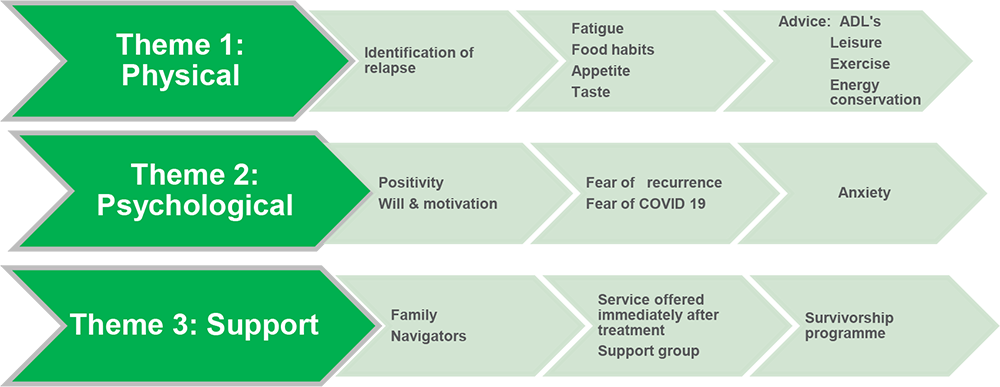Key Contextual Factors
- The service is led by the Cancer Care Pathways Directorate (DCCP) within the Department for Health Services of the Ministry for Health.
- DCCP is housed within the Sir Anthony Mamo Oncology Center and Mater Dei Hospital.
- The related policy framework is the National Cancer Plan 2017-2021.
Key Components/Steps
- Meetings were held with multi-disciplinary teams (MDTs) for different cancer sites.
- A Survivorship Coordinator was recruited.
- A draft pathway for survivorship services was mapped.
- A survey on survivorship needs was conducted and results were thematically analysed.
- A database was developed for documentation.
- Sessions with colorectal cancer survivors (individually or in very small groups) were piloted.
- Sessions will be extended to other cancer patient groups.
- Survivorship classes commenced in October 2020 but were halted due to covid restrictions. Will re-commence in Q4 2021
- Holistic Needs Assessment (HNA) clinics are being established - This service is initially aimed at breast and gynae cancer patients who have completed cancer treatment with curative intent and happens around 3 months post end of treatment. These will give patients the opportunity to discuss concerns in a one on one appointment – concerns that aren’t possible to explore in a busy oncology clinic – spiritual/ financial/ social/ psychological/ physical and others. They will be supported and signposted accordingly to the appropriate services. The aim is to also slowly expand the HNA clinics to other cancer sites.
Main Impacts / Added Value
- The analysis of the results of the survey conducted before the planning and introduction of the programme identified three main themes which the participants projected as major needs after they finished their treatment (presented in the figure below).

Lessons Learned
Importance
- getting acceptance, support and funding by authorities for this new service;
- researching for the post and creating a job description for the new role of Survivorship Coordinator including clarity on the competencies required by the required holder of this role;
- researching the needs of cancer survivors in the local context and prior to planning and implementation;
- developing appropriate IT data storage and needs assessment tools;
- ensuring that face-to-face or telephone support address targeted patient and family needs;
- working with the MDTs to develop Survivorship classes adapted to cancer survivors of different cancer patient groups.
References and Documentation
- National Cancer Plan 2017-2020, Ministry for Health, Malta (2017)
- Charter of Patient’s Rights and Responsibilities, Ministry for Health, Malta (2016)
- Cancer Care Pathways Directorate, Department for Health Services, Ministry for Health, Malta
- European Partnership for Action against Cancer (EPAAC deliverables)
- European Guide on Quality National Cancer Control Programmes (2013)
- Boosting Innovation and Cooperation in European Cancer Control (2013)
- Cancer Control Joint Action (CanCon deliverables): European Guide on Quality Improvement in Comprehensive Cancer Control, 2017 (particularly Chapter 7 - Survivorship and rehabilitation: policy recommendations for quality improvement in cancer survivorship and rehabilitation in EU Member States)
Contact
- Institution/organization: Ministry for Health, Malta
-
Department/lead: Directorate for Cancer Care Pathways
- Web: https://deputyprimeminister.gov.mt/en/ccp/Pages/home.aspx
- E-mail: cancercarepathways@gov.mt
 Malta
Malta